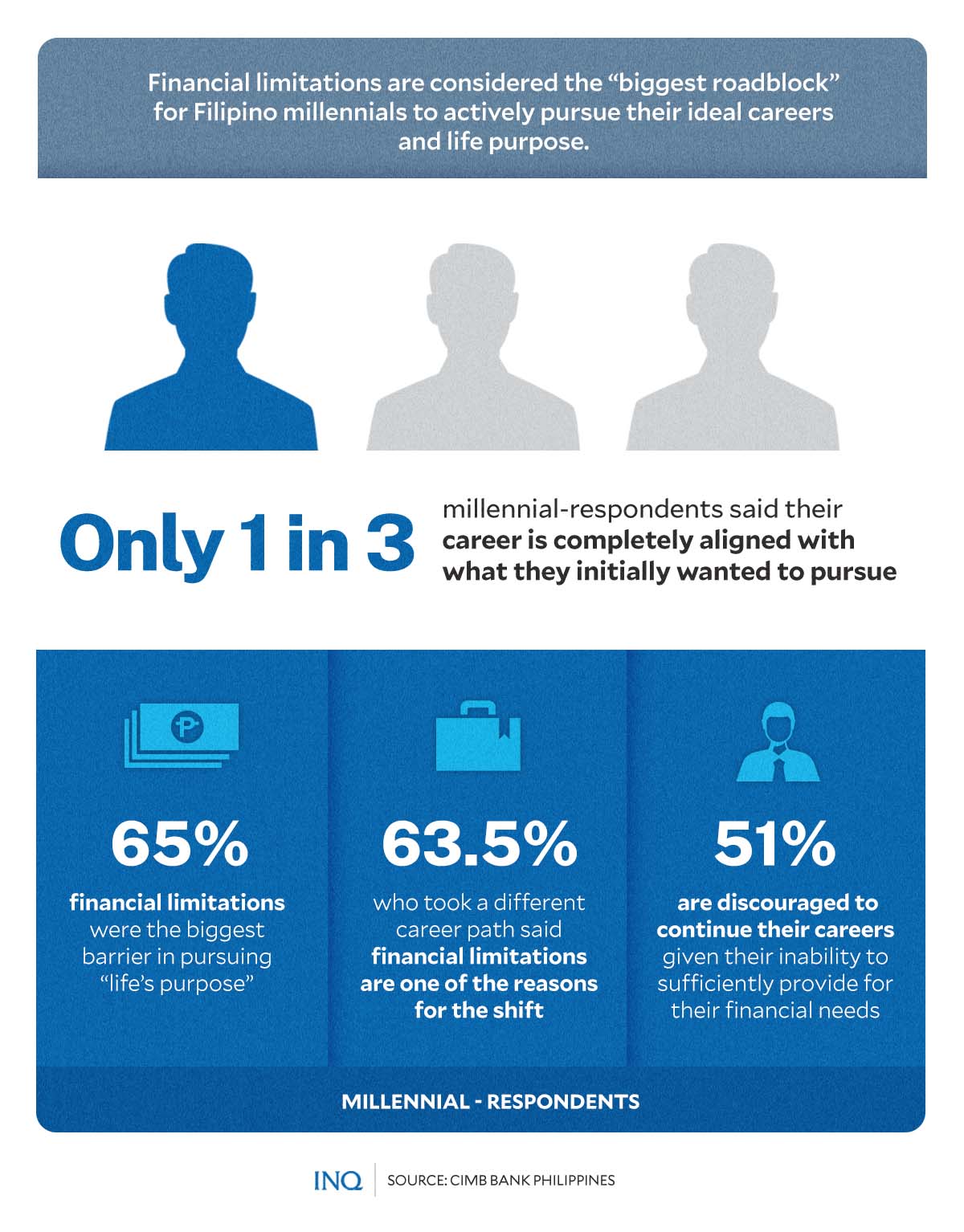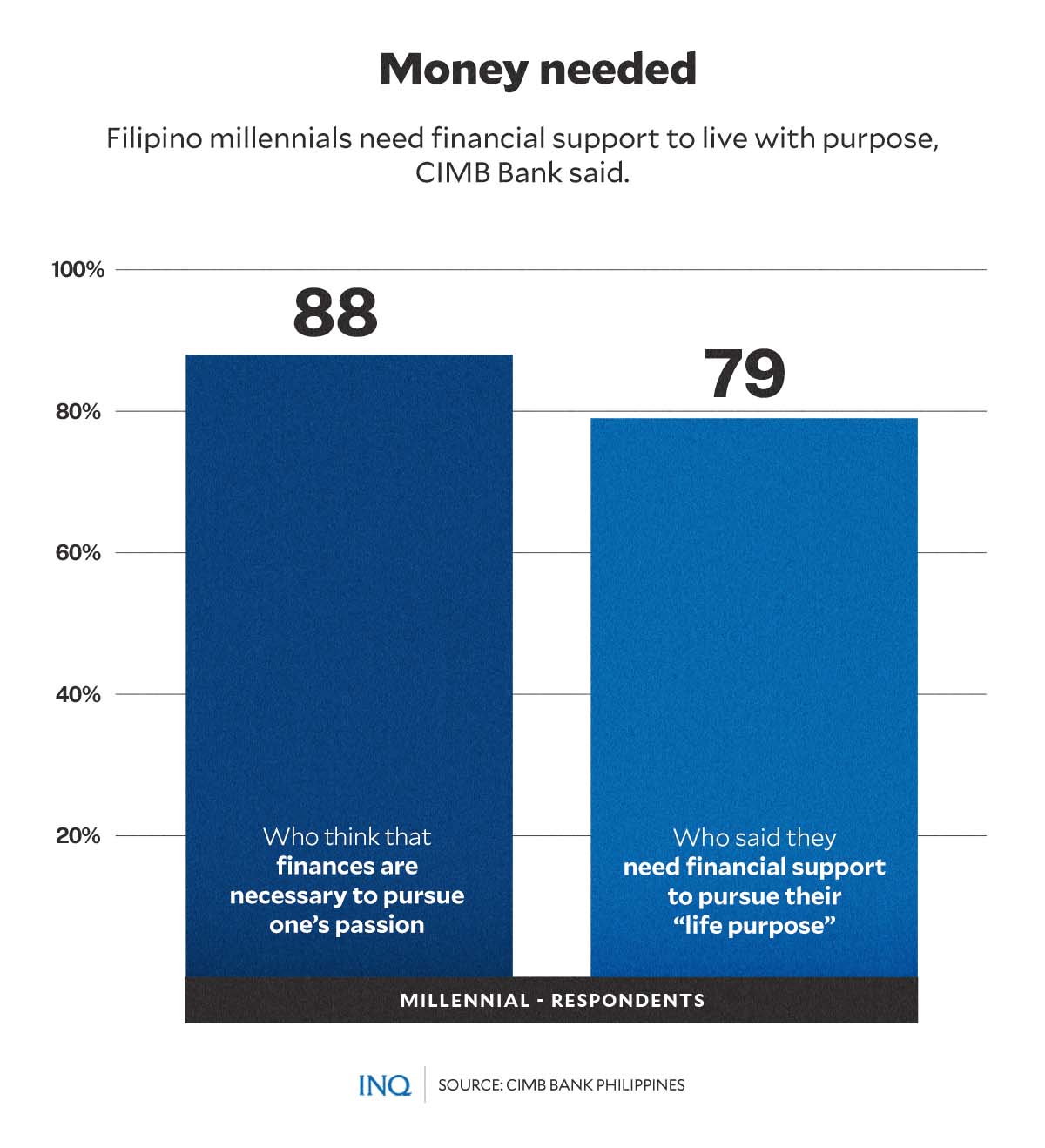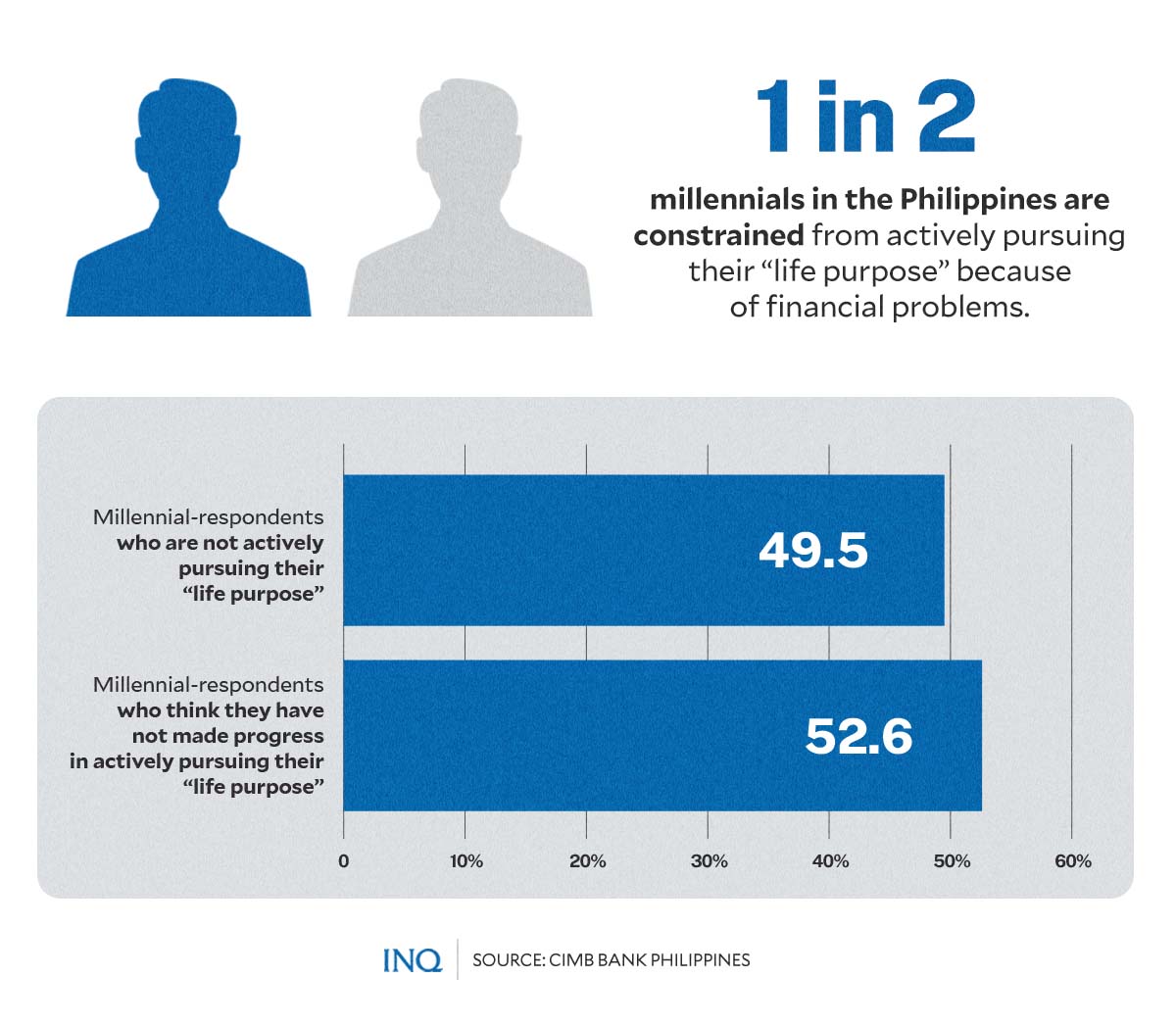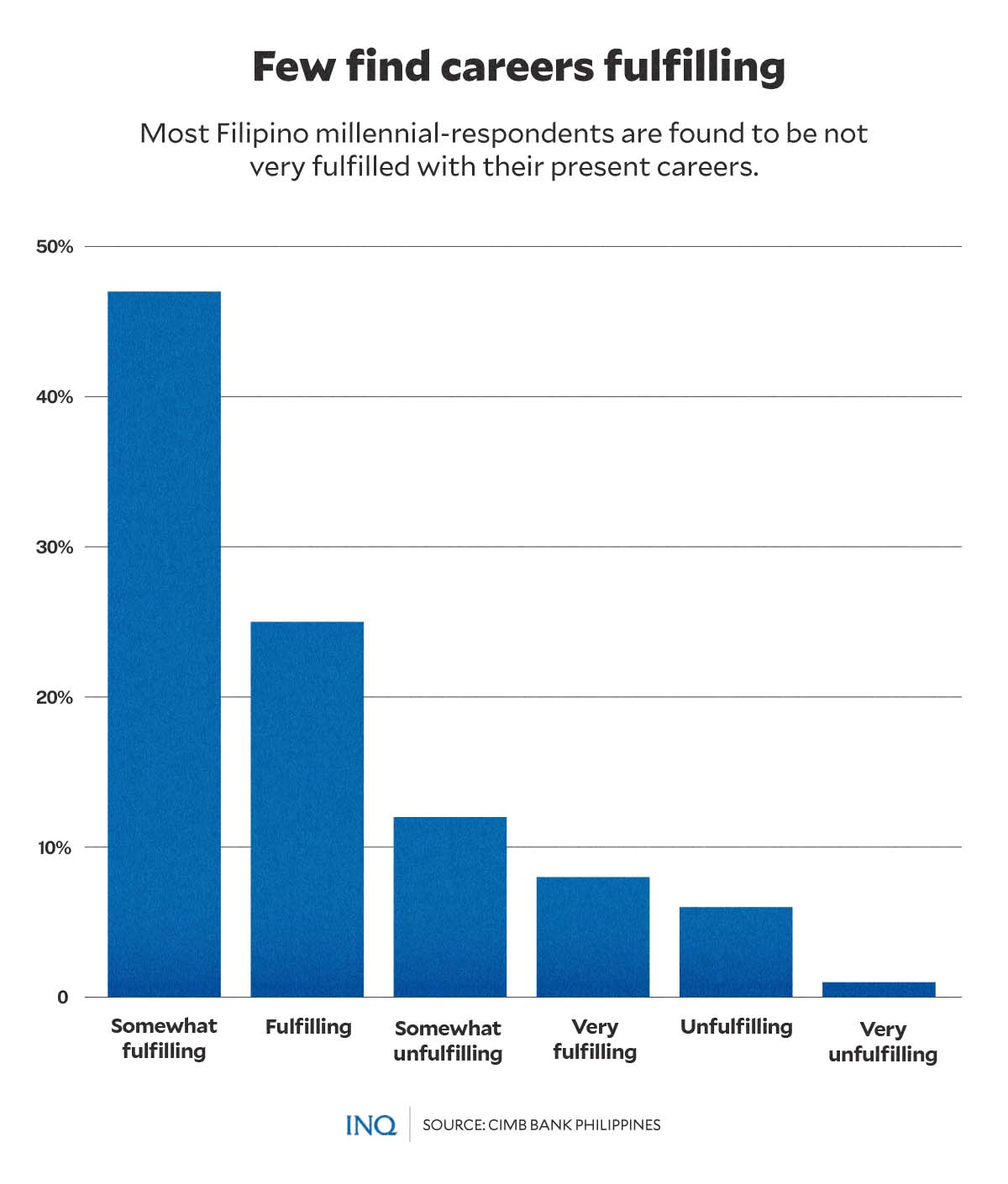Need to make ends meet forces PH millennials to give up dreams
MANILA, Philippines—With financial limitations as “biggest roadblock,” 1 in 2 Filipino millennials are no longer actively chasing their “passion and purpose in life.”
This was revealed by CIMB Bank Philippines as it released the results of the study it conducted with Milieu Insight and the Ateneo Business Resource Center.
As stressed by Juda Kanaprach, Milieu Insight’s chief commercial officer, financial limitations are a “huge roadblock” for millennials to pursue their passion and life purpose.
“We hope that the results of this study help to bring more awareness, as well as to drive efforts to equip them with the right resources to navigate their careers,” she said, referring to the study “The Pursuit of Purpose: Discovering Filipino Millenials’ Views on Living a Life with Purpose.”
This, as only 1 in 3 Filipino millennials—32.1 percent—said their career is completely aligned with what they initially wanted to pursue.
Article continues after this advertisementBased on the findings of the study, 63.5 percent of those who took a different career path said financial limitations were one of the main reasons for their decision.
Article continues after this advertisementOne of them is Daphene Raymundo, a communications graduate, who was once so passionate about pursuing a career in broadcasting.
Raymundo, who graduated from a university in Cagayan Valley in 2019, told INQUIRER.net that while she wanted to pursue her dream, she had no choice.
“Opportunities are lacking for communications graduates like me, especially if we stay in the province, so I decided to do hosting gigs while taking some units to be able to take the Licensure Examination for Teachers.”
She said if she did not decide to take a different career path, she and her family would struggle to make ends meet, especially amid the rising prices of basic needs.
Inability to provide for basic needs2
Over half, or 51 percent of Filipino millennials, are already discouraged to continue their careers given their inability to sufficiently provide for their financial needs.
Based on latest data from the National Wages and Productivity Commission, a worker who gets the minimum wage earns only an average P306 to P570 a day, depending on which region he or she is working.
Metro Manila has the highest minimum wage at P570, while workers in the Bangsamoro Autonomous Region in Muslim Mindanao earn only an average of P306 to P341, the lowest in the Philippines.
This is not yet the worst part, though, since the value of these minimum wages shrink as inflation, or the increase in prices over a given period of time, rises.
Based on data from the Philippine Statistics Authority, the inflation readout in January hit a new all-time high of 8.7 percent, especially because of the higher year-on-year increase in the index of housing, water, electricity and gas.
READ: Philippine inflation rose to 8.7% in January
Then in February, there was still no reprieve as the Bangko Sentral ng Pilipinas said inflation likely settled within 8.5 percent to 9.3 percent.
READ: Philippine inflation yet to peak; Feb high pegged at 9.3%
With the readout accelerating to 8.7 percent in January, the think tank Ibon Foundation said “Filipinos entered the new year poorly positioned to cope with even higher prices and inflation.”
This, as “the gap between workers’ wages and the estimated family living wage continues to widen.”
Ibon Foundation said the P570 minimum wage in Metro Manila, which is already the highest in the Philippines, is not even half of the living wage of P1,161 a day for a family of five to live decently.
Letting go of life meaning
The bank said the results of the study indicated that 1 in 2 Filipino millennials “may not be pursuing, or believe that they are not making progress on their life purpose.”
Out of the 300 male and female respondents—26 to 42 years old—49.5 percent are not actively pursuing their life purpose, while 52.6 percent think that they have not made progress in pursuing their life purpose.
This, as 65 percent of the respondents shared that financial limitations were the “biggest barrier” for them to pursue their dreams.
“More financial support needs to be provided for them to achieve their life goals,” the bank said.
Based on results of the study, 88 percent of Filipino millennials think that finances are necessary to pursue one’s passion.
READ: Dark side of PH jobs numbers: More Filipinos in outright informal work
Likewise, 79 percent shared the same sentiments about the necessity of finances in pursuing their life purpose.
The bank did not specify the ways one can pursue his or her life purpose, but certainly, volunteering is one.
However, as stressed by international NGO Civicus some are concerned about the effect that compensation may have on “volunteering and civic participation.”
“There is a worry about creating an ‘economy around participation’ where young people will only contribute their time and efforts when paid, challenging the INGO’s ability to deliver some projects at scale.”
Civicus stressed, though, that the youth leaders they consulted said “they never went into volunteer work with the expectation of ‘getting paid,’ but it helps and means a lot when they do.”
Not so fulfilled
The bank said the results of the study also indicate that Filipino millennials are not very fulfilled with their current careers.
This, as only a third, or 33 percent, said they find their career “fulfilling” to “very fulfilling.”
Almost half, or 47.2 percent, could also only consider their career as “somewhat fulfilling.”
The rest of the respondents said they find their career “somewhat unfulfilling” (12 percent); “unfulfilling” (6 percent); and “very unfulfilling” (1 percent).
With the findings of the study, the bank said “it has strengthened our advocacy to help our customers achieve a purposeful life not only through our products and services, but also through our ongoing financial literacy program.”




